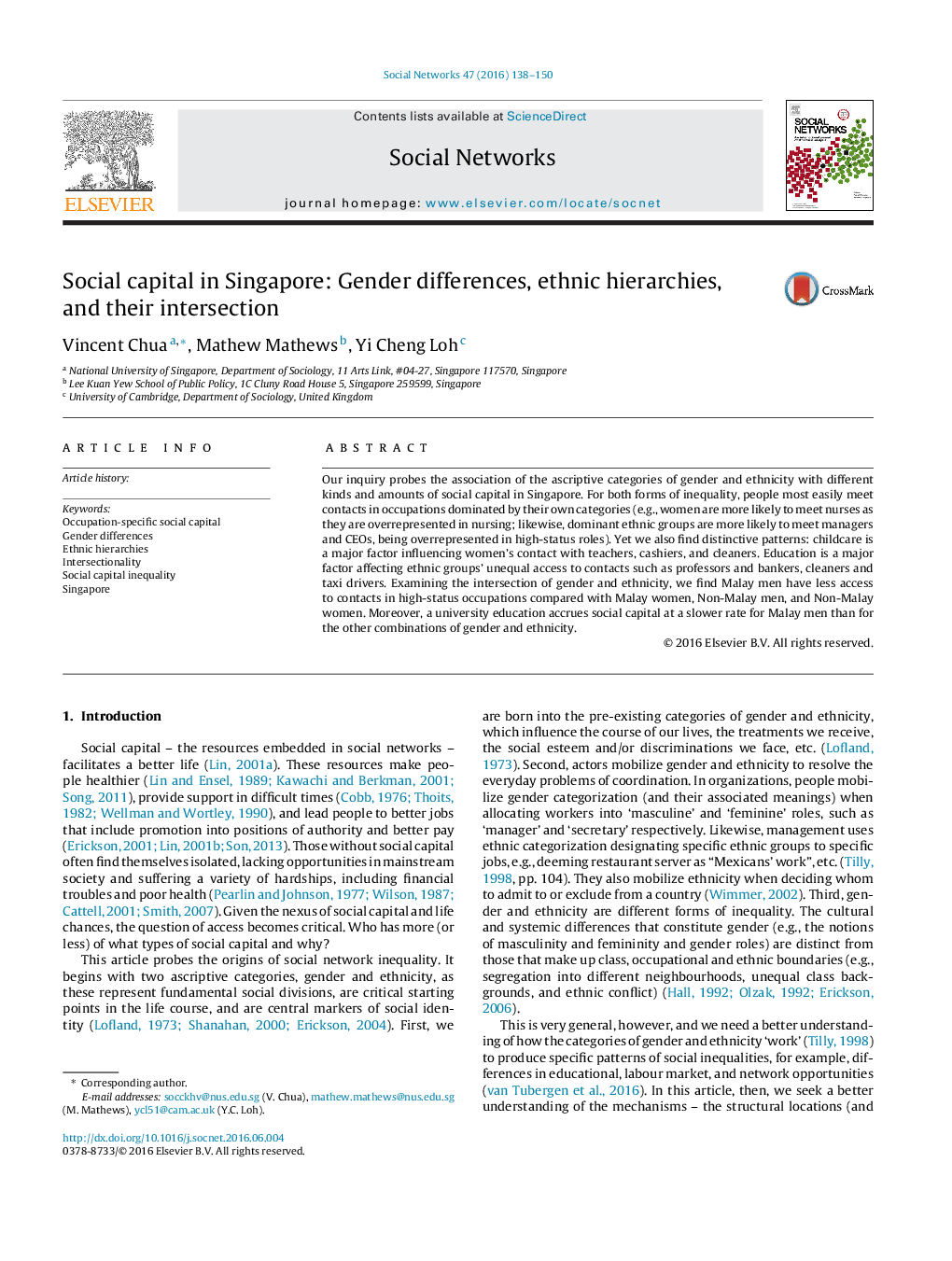| Article ID | Journal | Published Year | Pages | File Type |
|---|---|---|---|---|
| 7538443 | Social Networks | 2016 | 13 Pages |
Abstract
Our inquiry probes the association of the ascriptive categories of gender and ethnicity with different kinds and amounts of social capital in Singapore. For both forms of inequality, people most easily meet contacts in occupations dominated by their own categories (e.g., women are more likely to meet nurses as they are overrepresented in nursing; likewise, dominant ethnic groups are more likely to meet managers and CEOs, being overrepresented in high-status roles). Yet we also find distinctive patterns: childcare is a major factor influencing women's contact with teachers, cashiers, and cleaners. Education is a major factor affecting ethnic groups' unequal access to contacts such as professors and bankers, cleaners and taxi drivers. Examining the intersection of gender and ethnicity, we find Malay men have less access to contacts in high-status occupations compared with Malay women, Non-Malay men, and Non-Malay women. Moreover, a university education accrues social capital at a slower rate for Malay men than for the other combinations of gender and ethnicity.
Related Topics
Physical Sciences and Engineering
Mathematics
Statistics and Probability
Authors
Vincent Chua, Mathew Mathews, Yi Cheng Loh,
